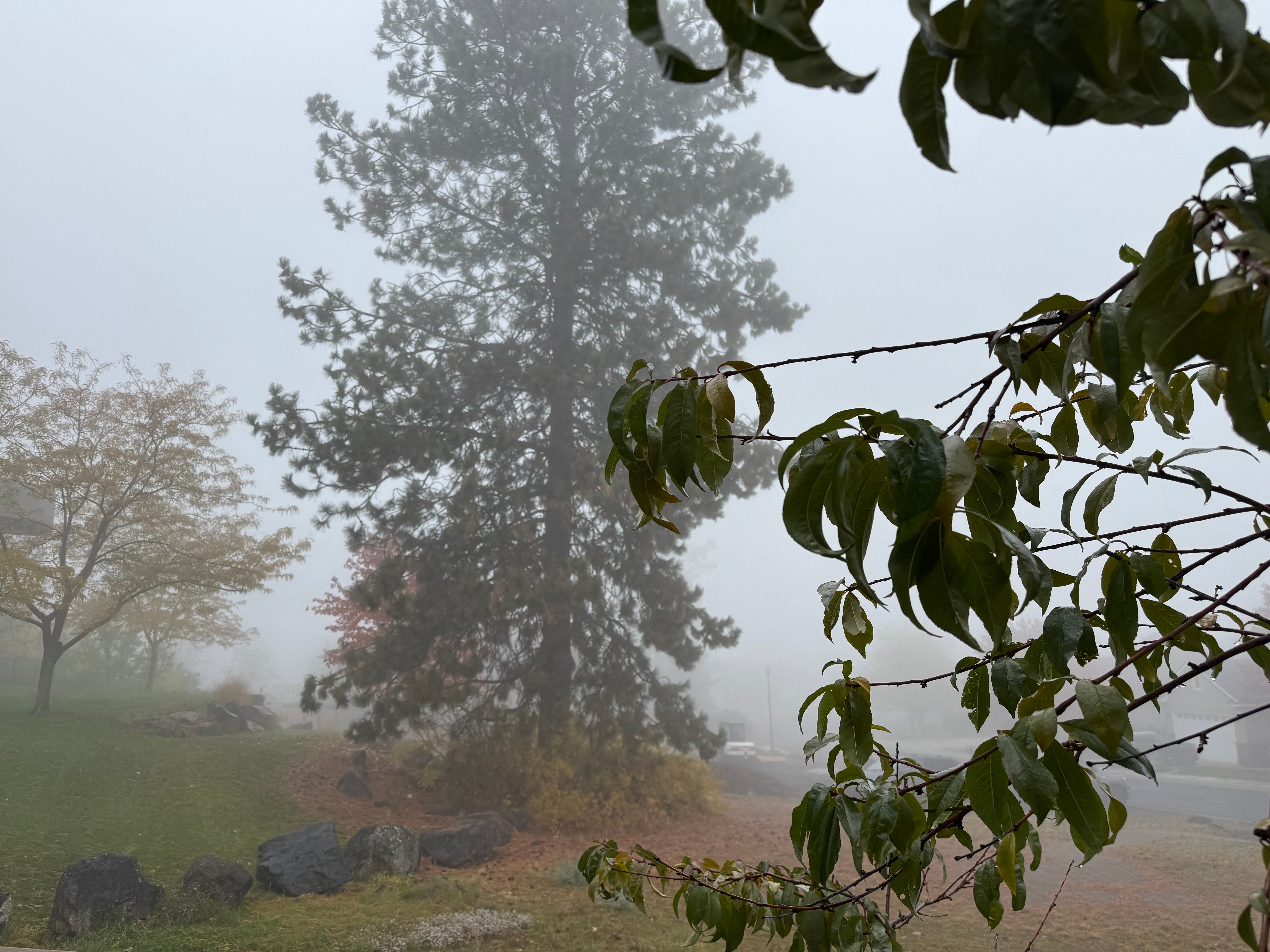ON ISOLATION
It’s the first foggy morning of autumn in Spokane, a proper fog, one that keeps and holds the light of the morning and never quite lets go. Here, the fog does a beautiful thing with the pine trees: they recede in a gradient collective, trunks and boughs getting fainter and fainter, like a line of ghosts. The paint color I chose for my first home here was called “ghost pines,” and it is not the same color as this phenomenon. Where I grew up, in sage country, fog is a swallowing thing. There is even less to mark the distance.
I have a sharp memory of my father chopping vegetables to make a winter stew. It was a fog-swallowed winter day on the farm, not even the country highway visible from the kitchen window. He was chopping and I was sitting at the kitchen table—either just sitting, because I did that more as a kid, or with a sheet of homework in front of me, school-aged. The only sound I remember is the chef’s knife on carrot on cutting board, a dull and repetitive thunk. The feel of that memory is a time and place suspended, the fog making it seem as if the only things that existed were me, my father, and the fog. The carrots and knife. The simple task of making stew. It was a microcosm of how living in the country felt.
The sense of isolation on a dryland farm that is outside an already distant place has an ebb and flow. The flow is happy: an away-from-the-world feel where clouds take on personality, where crows dominate the conversation, where there is wind and quiet at sundown, and the milky way. The ebb is harder. It’s away-from-the-world stuck. It’s depression. It’s processed foods and loneliness.
If rural places are defined by their distance, what might exist in those distances? What intangible things lie there that make a wave from a passing farm truck carry so much weight, that keeps someone at home because the town hospital is no good anyway, that both feeds and sucks a spirit? From my experience, it was near equal parts good and bad. Still moments like a foggy morning in the country feel like a knife’s edge. Sometimes the fog stays for days, and that is a long time to feel swallowed.
The pandemic gave many of us a more intimate definition of isolation. There is isolation that arises from physical distance, and there is emotional and mental isolation. The countryside holds all three. So can the city. It can feel dangerous and it can feel peaceful. The pandemic was a reminder that we humans are not meant to stay alone for too long. If you’ve ever wondered what it’s like to live in the country, it’s a little like that all the time.
The space away on my family’s farm felt liberating when we were running around in the play clothes that our mother labeled: away from everyone, we could only ever be ourselves, and we delighted in the tattered jeans and old shirts that meant we could get as dirty as we wanted. As an adult, when I return to the farm, I feel the prickle of this isolation hit harder. I delight in the nighthawks. But when the wind kicks the place into a brown-out, world miniaturized by blowing field dirt, there’s a voice in the back of my mind that screams to leave.
I lean into isolation in small doses now: one still and foggy morning, a few wordless hours, a couple of thoughts and a pen. I can choose not to stay too long.

Subscribe to Lisa's Substack here.